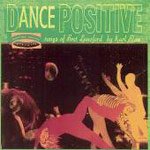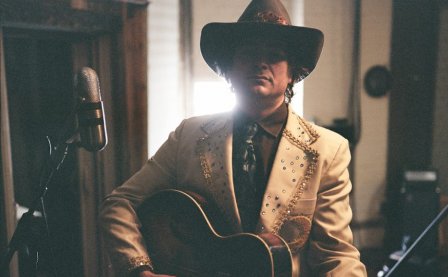The tribute album is a spotty subgenre in its very existence. A diverse group of pop musicians contributing cover versions to put together an album, even at its best, yields mixed results. At their most effective, reworked tracks can realize a heretofore undeveloped element of a song that can really unlock some extra magic. At worst, the songs come across as uninspired and uninspiring. Of course the mix of these elements can be fun in itself, seeing what artists are best suited to recycling chores.
Dance Positive mostly has the uninspired feel to it, but instead of a diverse cavalcade of musicians taking on the tributee’s oeuvre, Karl Blau alone takes on the lyrics and melodies of Bret Lunsford, reworking them to his own satisfaction. Specifically, Blau is engaging with Lunsford’s contributions to the band D+, of which Blau is a member. Call it a tribute album, a remix album, a chance for Blau to wield unmitigated power over the collaborative material he’s formerly worked with D+, etc., but whatever you do, don’t call it essential.
To be fair, these versions are significantly different from their source material, but difference in itself does not necessarily make a good tribute. There’s a definite reggae/dub fixation here. Unfortunately, he neither achieves the blissful throb of dub at its best or the jubilant, dramatic quality of good reggae. While I’m sure it’s liberatory for Blau to take control of an element of his collaborative endeavor, it seems that he might put too much value on the power of the lyrics and melody, surrounding them with fairly plodding arrangements that seem as likely to get a dance floor moving as they are to get anyone feeling “positive.” There’s nothing offensive or unlistenable; it’s just that there’s nothing added or invented either. It comes off like a tribute done more out of listlessness or boredom than any real compulsion to celebrate an under-appreciated body of work. Perhaps more separation from the source material might be necessary for the tribute equation to work properly, as it’s hard to imagine new listeners being drawn into either Blau’s or Lunsford’s work with this effort. Rather, it is an interesting footnote for the already extant fans of D+, Beat Happening, or the Portland scene in general.
More about: Karl Blau




